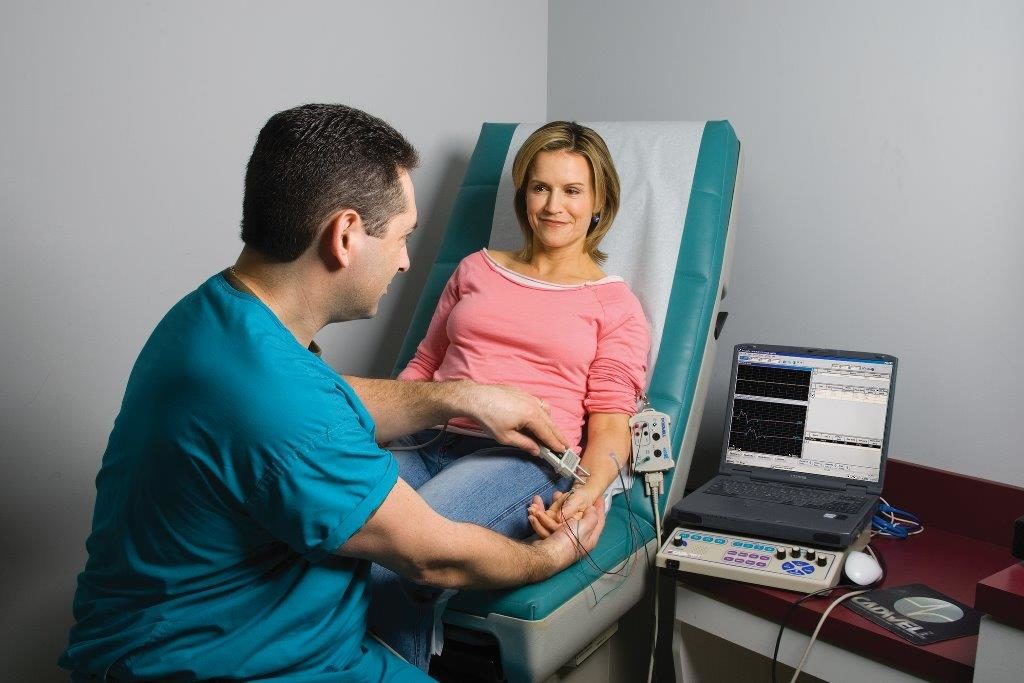 Are your patients experiencing numbness or tingling? Then you may want to recommend a nerve conduction velocity test. This test is used to diagnose neurological diseases or conditions such as carpal/tarsal tunnel syndrome, peripheral neuropathies, neuromuscular junction disorders and more. The test provides an accurate measurement of nerve function including size, timing and speed of response which leads to quantitative determination of the location and extent of any neurological damage or injury. At Resnick Electrodiagnostic Consultative Services, we can provide a variety of advanced mobile diagnostics right in your office, allowing you to better serve your patients. If you are looking for nerve conduction velocity studies on Long Island, see how our services can help you today!
Are your patients experiencing numbness or tingling? Then you may want to recommend a nerve conduction velocity test. This test is used to diagnose neurological diseases or conditions such as carpal/tarsal tunnel syndrome, peripheral neuropathies, neuromuscular junction disorders and more. The test provides an accurate measurement of nerve function including size, timing and speed of response which leads to quantitative determination of the location and extent of any neurological damage or injury. At Resnick Electrodiagnostic Consultative Services, we can provide a variety of advanced mobile diagnostics right in your office, allowing you to better serve your patients. If you are looking for nerve conduction velocity studies on Long Island, see how our services can help you today!
What your patients should expect
We want to make sure your patients are as comfortable as possible while experiencing quality, professional care. After careful evaluation and case discussion, we will administer this diagnostic test. Depending on the nature of the patient’s symptoms, we will place stimulating and recording electrodes at specified locations on the skin in standardized positions in order to stimulate and record sensory and motor nerve activity.
Mild tolerable electrical simulation on the skin surface over the nerve of interest is what is felt and patients at worst will sense a mild discomfort. Several nerves are studied based on the patient’s suspected condition after a clinical examination is employed. Test time varies based on presenting problems. Your patient’s comfort is our top priority throughout this entire process.
In addition, a routine Needle Electromyographic examination (EMG), is typically administered at the same time as a nerve conduction velocity study. They are sister tests and are run together, in tandem, when evaluating patients generally. An EMG is used to determine if there are any issues with the electrical activity of the muscles that could be indicative of certain disorders related to, main motor nerve axonopathies, myopathic disorders and/or neuromuscular junctional disorders. The Needle EMG component of the procedure involves gentle insertion of a thin pin style needle electrode, into the muscles, one at a time, through the skin, so as to use the pin as a pick-up microphone within the muscles, so the electrical muscle noise can be heard. This test is completely safe and well tolerated when performed by Doctors well trained and highly skilled in the administration of this procedure.
Nerve conduction velocity studies on Long Island can provide added value to your practice. Contact us today to learn more!
